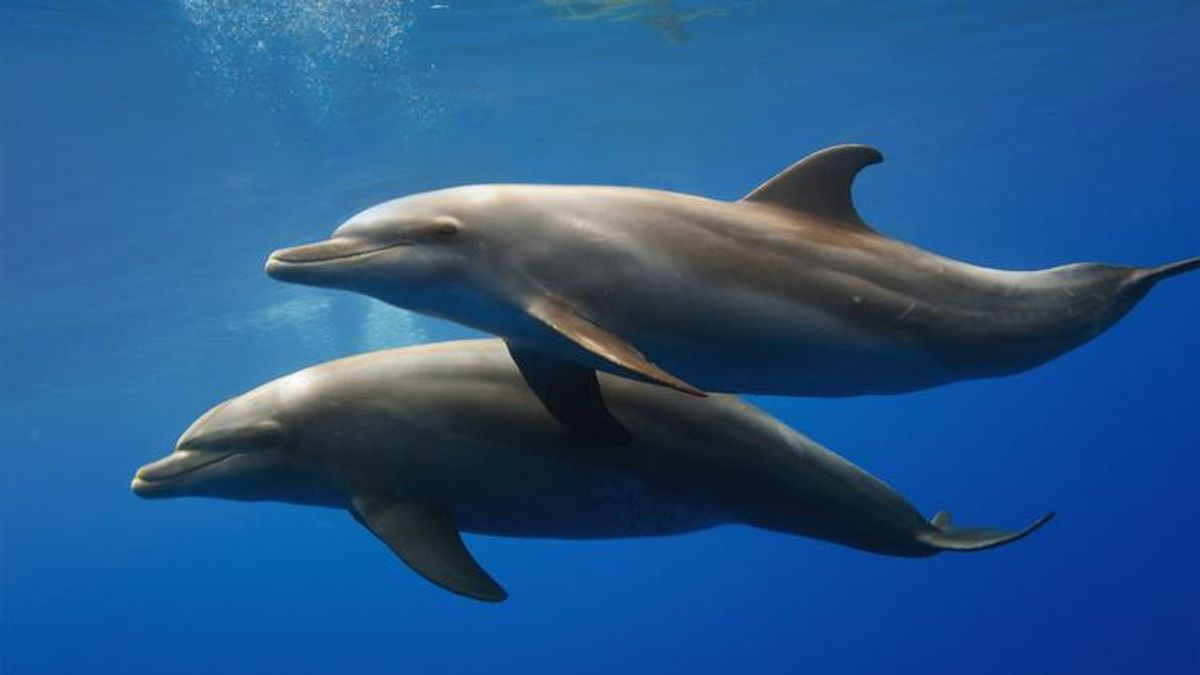Researchers have found that female dolphins have evolved clitorises to feel pleasure, which may explain why they have lots of lesbian sex.
Published recently in the academic journal Current Biology, the study includes an analysis of the genitals of 11 female bottlenose dolphins that had died naturally. Scientists discovered that the dolphins' clitorises had erectile tissue structures with many blood vessels and nerves right beneath the skin.
The researchers concluded that due to these elements being present -- similar to the case with human clitorises -- the dolphins must get pleasure from the area.
Patricia Brennan, the lead author of the study and a biologist at Mount Holyoke College in Massachusetts, told The New Scientist that the discovery makes sense because of the amount of sex that dolphins have.
"We know that dolphins have sex all the time," Brennan said. "They have sex for social reasons, not just for reproduction. It makes sense that the clitoris would be functional [and give pleasure when stimulated]."
She added that the dolphins' sex isn't just for reproduction. Researchers have found dolphins have sex all year round, not only when they are ready for pregnancy.
"And not only do they have sex all the time, they have a lot of homosexual sex as well," Brennan said. She adds that they'll also use snouts and flippers to rub against each other's clitorises.
It's not just the female dolphins that get into same-sex sexual activities either.
"The males, for sure, have lots of homosexual sex. The males will have anal sex, they'll insert their penises into each other's blowholes," she explained. "Bottlenose dolphins are really hypersexual animals."
Brennan told Agence France-Presse that nonhuman sexuality is often understudied -- especially in female animals. She said that the lack of research into the sexuality of dolphins and other animals was "baffling."
"These are things that are critically important for us to understand evolutionarily. They may actually have something to teach us about our own sexuality," she told the news agency.
The lack of study may be due to people's discomfort discussing animal sexuality, according to Brennan.
"People might be uncomfortable if they knew that in order for me to have my beef, somebody had to stimulate the clitoris of a cow," she said, referring to research that shows the success of artificial insemination of female cows increases substantially when a person stimulates the cow's genitals.
The biologist explained that such research could speak to human health.
"There are certainly plenty of females who have problems during sex, for example, related to arousal, or related to pain during sex or inability to orgasm," Brennan told AFP. By studying fellow mammals, scientists can improve understanding about why these issues occur -- and provide possible solutions.
Next, Brennan plans to turn her research focus to alpacas, which can copulate for up to half an hour -- much longer than other hoofed mammals.


















































































